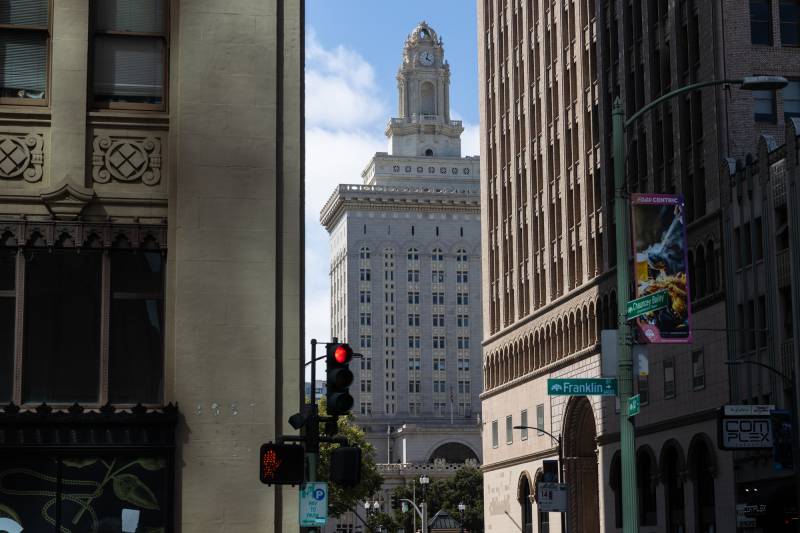The $4.2 billion two-year budget approved by the Oakland City Council enshrines some of Thao’s budget-saving maneuvers, like freezing positions across Oakland government to shore up the funding deficit, including more than 100 vacancies in the Oakland Police Department, and consolidating some city departments. That includes rolling homelessness services into the Department of Housing & Community Development and merging two agencies to create a new one, the Department of Children, Youth and Families.
But the Oakland City Council rolled back major cuts Thao proposed to non-police violence prevention services, though not to the level of previous years. This came after dozens of protesters rallied outside City Hall against those reductions.
After the acrimony over the loss of funding to the Department of Violence Prevention, the Oakland City Council ultimately added back about $2.85 million to that department and some related efforts, including $600,000 into addressing sex trafficking.
That department has more than 60 grant agreements with community-based organizations, including ones that offer restorative justice programs. Those services help more than 11,500 Oaklanders annually, according to the mayor’s office.
The Oakland City Council also committed more than $5 million in FEMA grants for each fiscal year to prevent fire department service cuts, which would’ve seen some fire engine companies alternate when they’re active, essentially spreading them thin to cover a wider geographic area.
While Thao’s budget already contained $216 million for affordable housing, the council authorized an additional $8.8 million for funding to quickly purchase homes, when available, for the homeless.
What about the police?
Well, it’s complicated.
Technically, the Oakland Police Department saw an increase in its overall budget, with raises for officers on the way.
Oakland’s 2021–2022 budget, for instance, spent $330 million on police, rising to $353 million in 2022–2023, $358 million in 2023–2024, and $364 million in the 2024–2025 budget.
But despite the budget increase, costs are rising in the police department, including salaries. To make up for that, the department will reduce the number of police academies, which according to Thao’s proposed budget could “result in OPD falling below the number of officers needed to address the public safety needs in Oakland.”
Oakland’s sworn police staff will shrink by 16 sworn positions to 710 in the latest budget. With various academies graduating officers, however, that number will fluctuate through June 2025. Police overtime was also cut by 15%.
In an alternative to police, the Oakland City Council also budgeted just over $240,000 for human resources positions to help bring new hires to the city’s Mobile Assistance Community Responders of Oakland, known commonly as MACRO. That community response team is centered around non-violent response to non-emergency 911 calls.
